The 2024 Peking University “AI + NEW MATERIALS” International Forum was successfully held at the Peking University Shenzhen Graduate School on December 4 to5. The forum was organized under the guidance of the Peking University Shenzhen Graduate School and jointly hosted by the School of Materials Science and Engineering (PKU) and the School of Advanced Materials at the Peking University Shenzhen Graduate School. Centered on the theme of “AI + NEW MATERIALS,” the forum brought together nearly 100 experts, scholars, and young researchers from countries and regions including Malaysia, Singapore, Vietnam, Hong Kong, and Macau. Through expert lectures, sub-forums, and other formats, the forum explored the intersection and integration of AI and materials science from multiple perspectives.
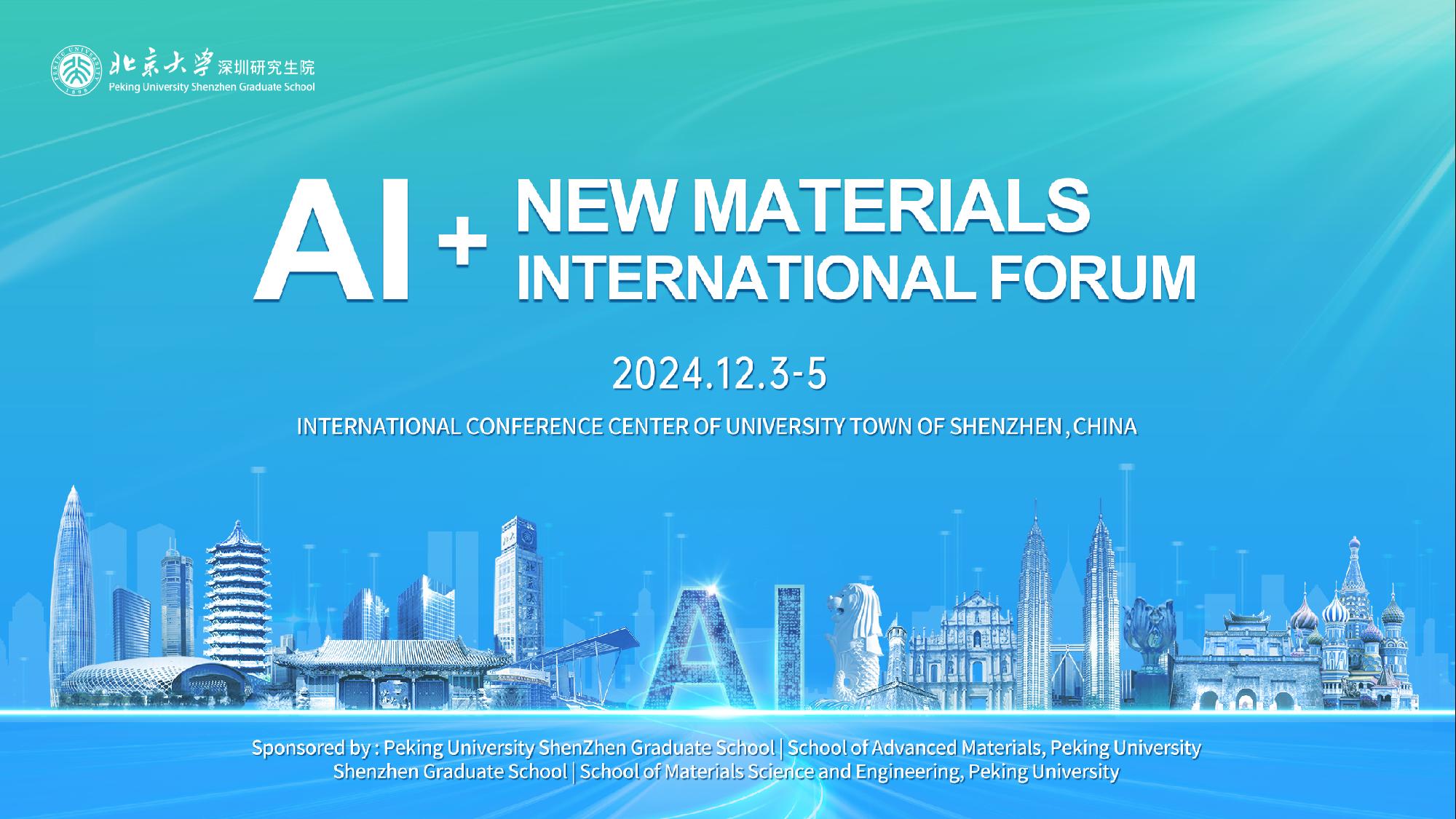
On the morning of December 4, the opening ceremony of the forum took place Lecture Hall 204of the International Conference Center in the Shenzhen University Town. The ceremony was co-hosted by Associate Professor Xiao Yingguo, Deputy Dean of the School of Advanced Materialsat Peking University Shenzhen Graduate School, and Assistant Professor Zhao Xiaoxu, Director of the International Cooperation Office at the School of Materials Science and Engineering (PKU).
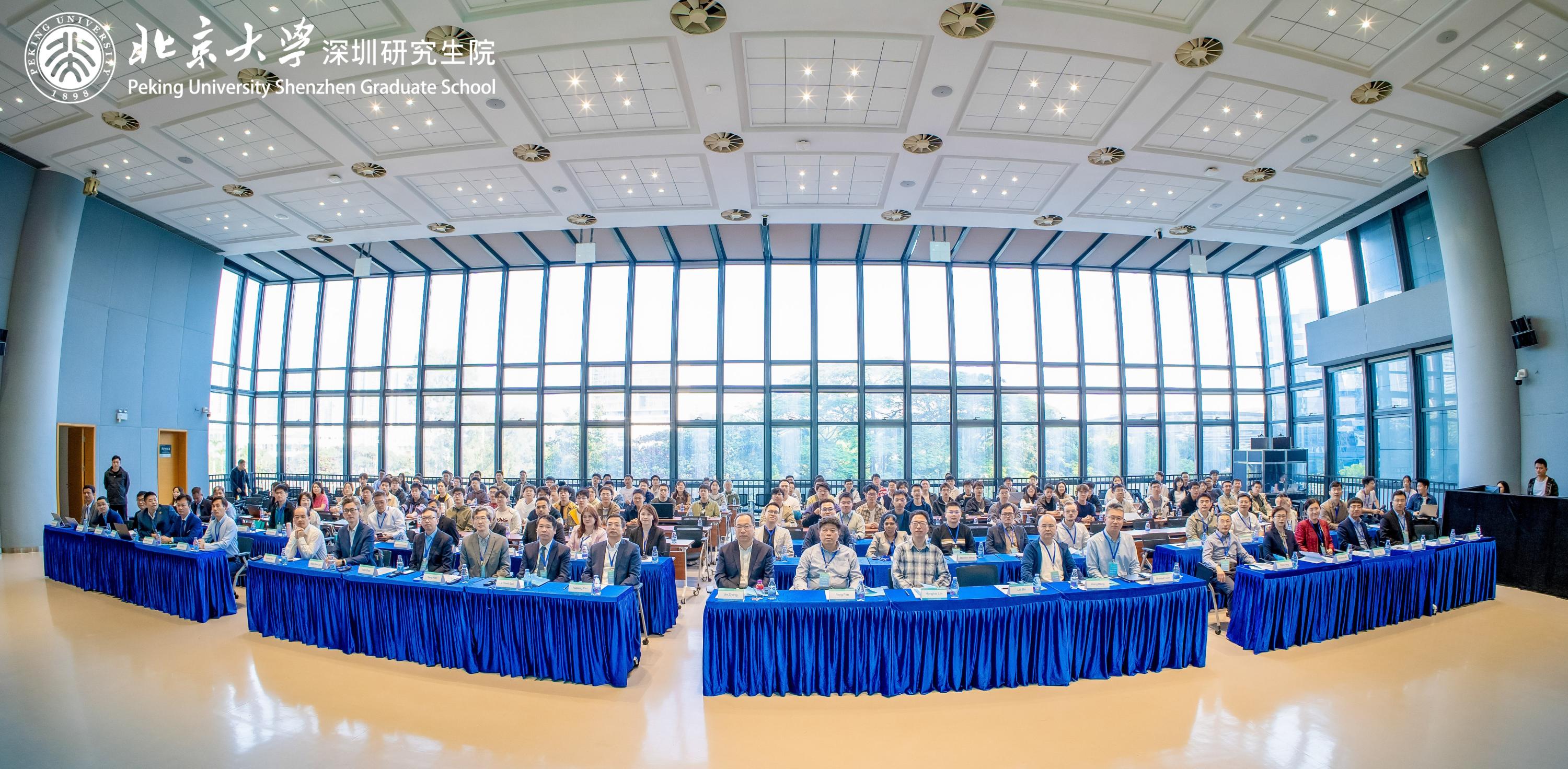
The Forum
In his speech, Professor Zou Ruqiang, Dean of the School of Materials Science and Engineering (PKU) and Dean of the School of Advanced Materials at Peking University Shenzhen Graduate School, emphasized that Peking University places great importance on cooperation with ASEAN universities. The university has been committed to fostering international collaboration with ASEAN institutions, including academic cooperation, faculty exchanges, student mobility programs, and the establishment of joint AIplus New Materials laboratories. He expressed hope that this forum would help build even closer ties between the institutions.
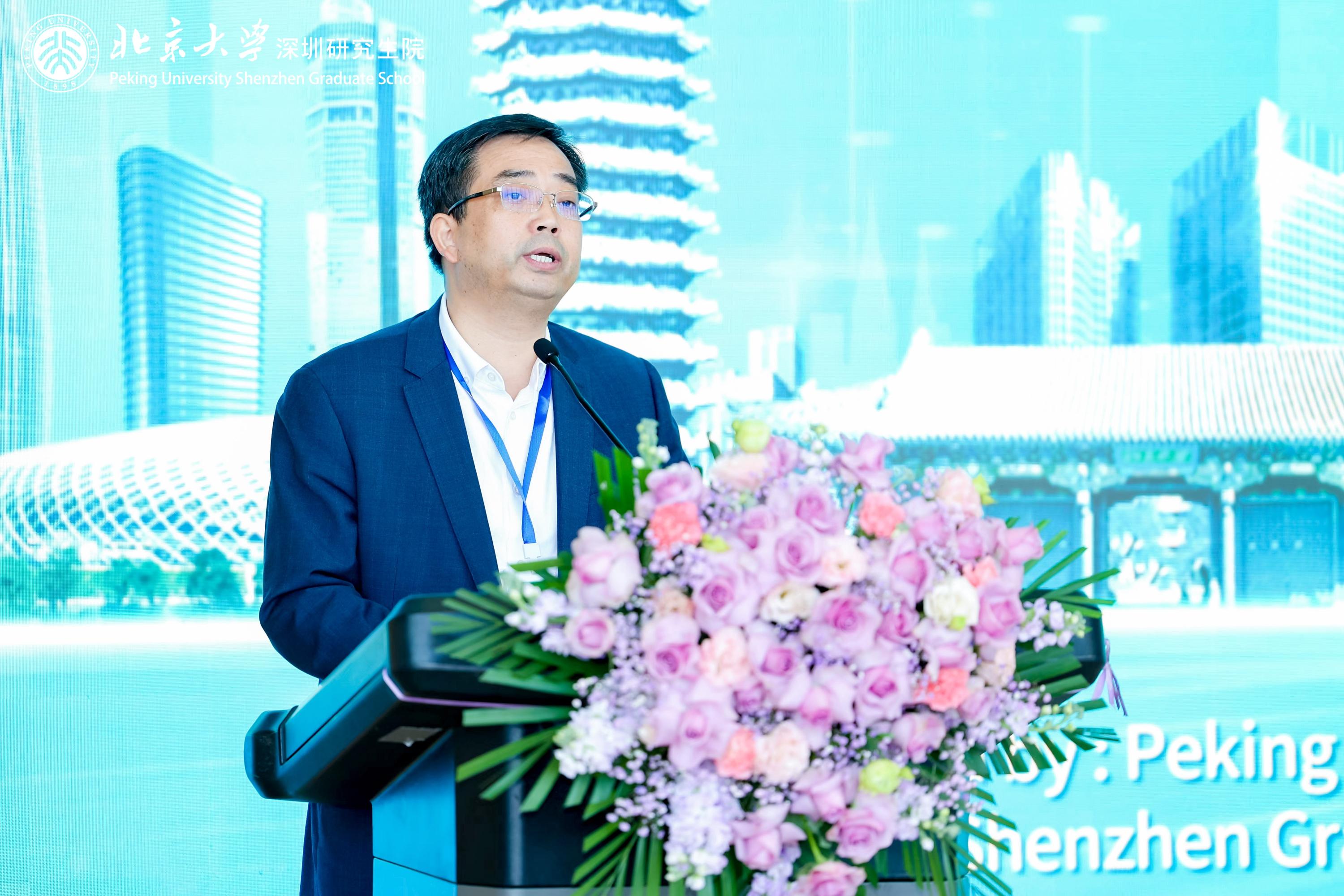
The opening speech
During the keynote session of the opening ceremony, Academician Zhang Jin, Member of the Standing Committee of the Party Committee and Vice President of Peking University, as well as Dean of Peking University Shenzhen Graduate School, delivered a speech titled“Can AI Change the Research Paradigm in Materials Science?”In his talk,he explored the transformative potential of artificial intelligence in materials science research. Zhang discussed how AI could revolutionize research paradigms in three key areas:AI for Material Characterization,AI for Controllable Preparation, andAI: From Lab to Industry. He also highlighted AI’s role in standardizing materials databases, provide a global perspective on fundamental materials research, and facilitate the leap from laboratory innovations to industrial applications. In addition, he shared his vision for the future,outlining the exciting possibilities AI holds for advancing materials science research.
Following his speech, several experts delivered thematic presentations. Professor Yanli Zhao from Nanyang Technological University in Singapore, Associate Professor Wey Yang Teoh from the University of Malaya in Malaysia, Professor Le Thanh Son from Hanoi University of Science and Technology in Vietnam, and Professor Yang Ren from City University of Hong Kong each shared insights on the applications of AI in their respective fields. Their presentations covered topics such as catalyst design, smart sensor development, integrated diagnostic and treatment systems, and materials research utilizing synchrotron radiation large-scale scientific facilities. All speakers emphasized the critical role of AI technology in driving the development of materials science.
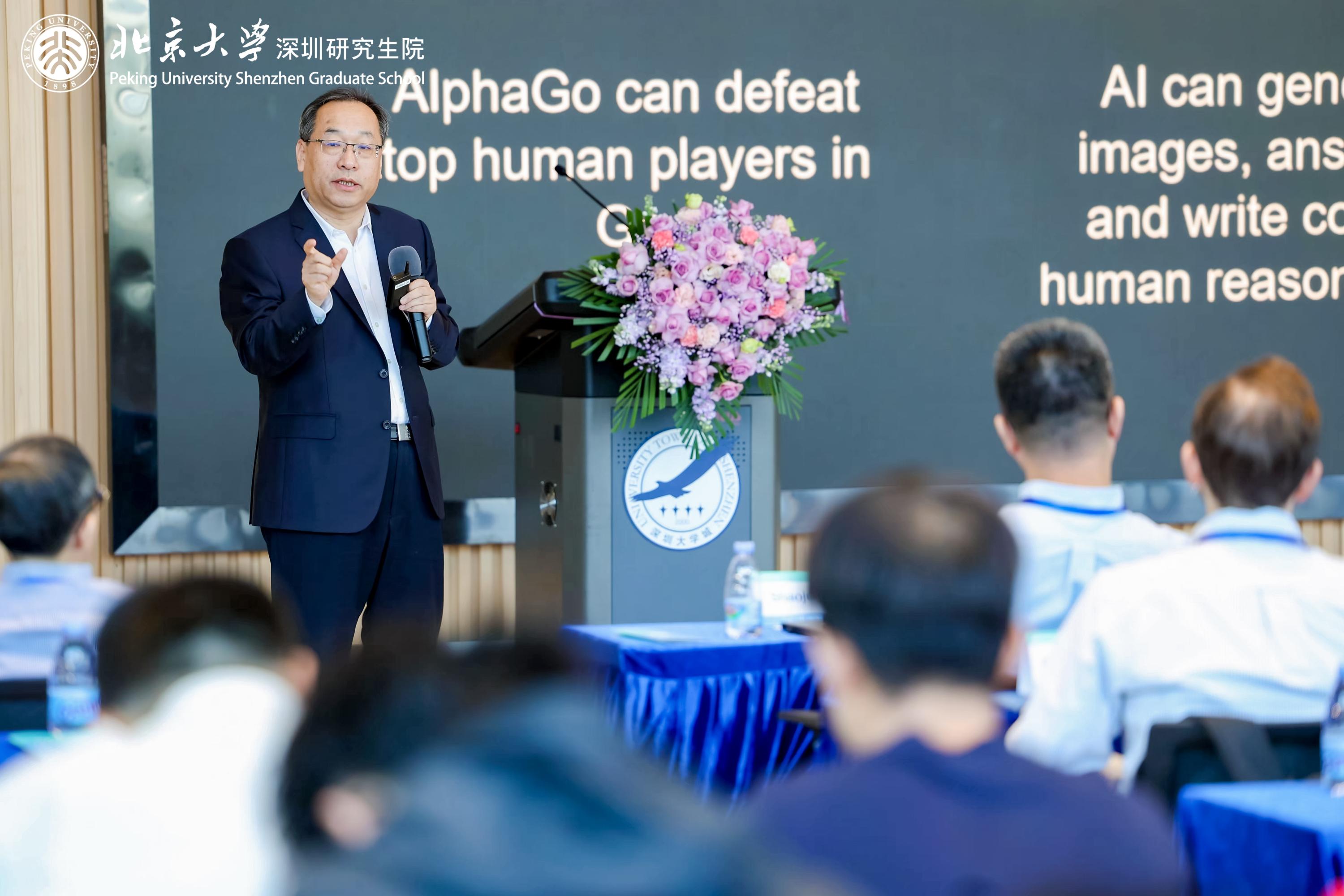
Academician Zhang Jin giving his keynote speech
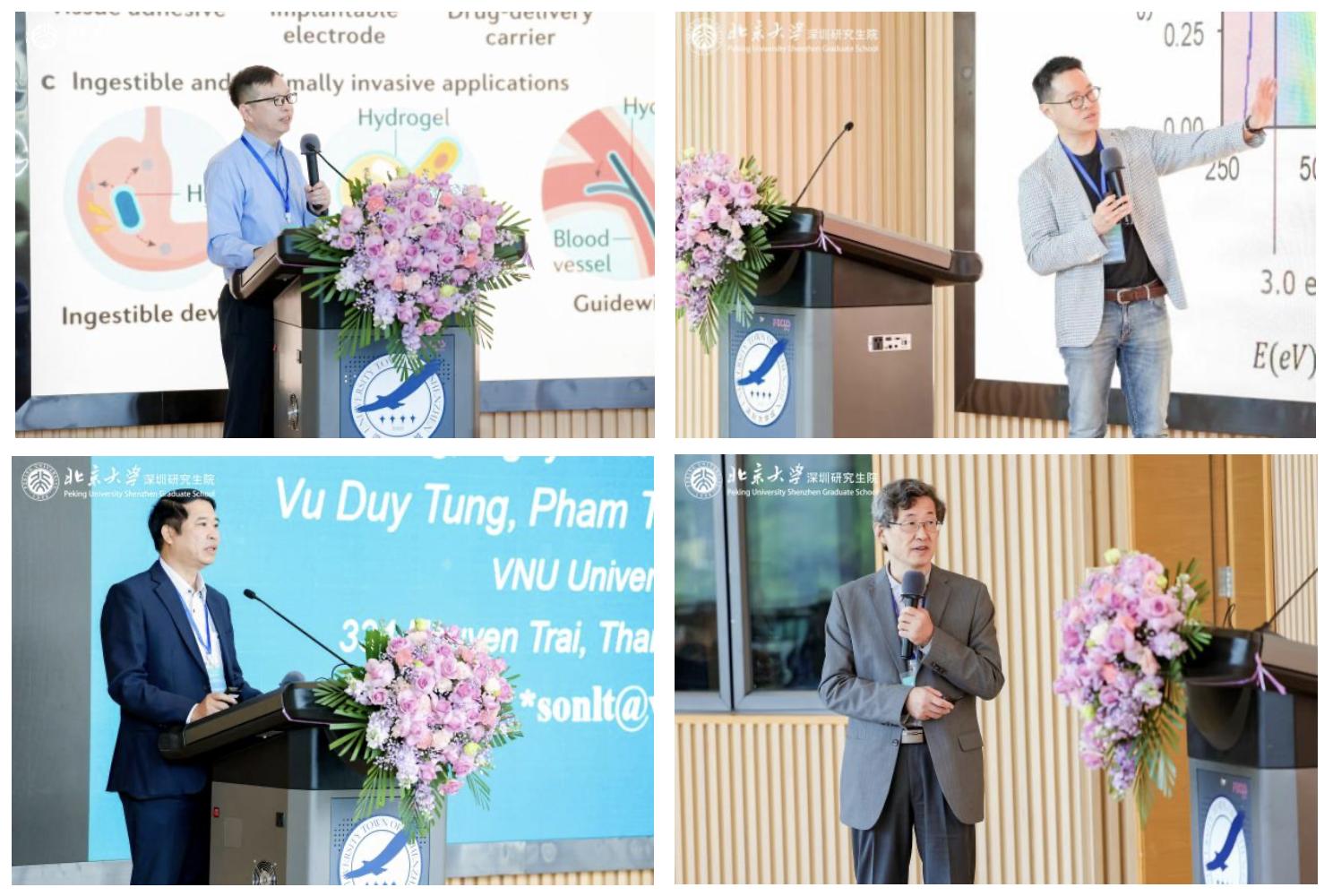
Yanli Zhao, Wey Yang Teoh,Le Thanh Son,and Yang Reng giving thematic presentations
On the afternoon of December 4, the thematic sub-forums were held at Lecture Halls 201 and 202 of the Shenzhen University Town International Conference Center. The sessions were chaired by Associate Professor Zheng Jiaxin, Deputy Dean of the School of Advanced Materials at Peking University Shenzhen Graduate School, Associate Professor Mo Fanyang, Professor Jiao Shuhong, Assistant Professor Pan Hao, and others.
In the first sub-forum, distinguished speakers included Professor Junmin Xue from National University of Singapore, Assistant Professor Zhenbin Wang from City University of Hong Kong, Professor Guo Shaojun from the School of Materials Science and Engineering (PKU), Professor Nguyen Van Ha from Hanoi University of Science and Technology in Vietnam, Associate Professor Liew Pay Jun from the University of Technology, Malaysia, Dr. Elankovan A. Sundararajan from the National University of Malaysia, Dr. Cheong Kar Mee from the University of Technology, Malaysia, and Researcher Yuzhi Zhang from DP Technology Co., Ltd.Their presentations explored the applications of AI in areas such as the experimental synthesis and prediction of novel stable materials, materials design, computational science, and curriculum development. The speakers unanimously recognized the vast potential of AI in advancing scientific innovation and significantly enhancing research efficiency.
Presentations in the first sub-forum
In the second sub-forum, presentations were given by Associate Professor Khin Wee Lai from the University of Malaya, Associate Professor Cui Yue from the School of Materials Science and Engineering (PKU), Dr. Rabiah Abdul Kadir from the National University of Malaysia, Dr. Mohd Nur Azmi bin Nordin from the Melaka Polytechnic University, Professor Pham Trung Kien from the University of Science and Technology in Ho Chi Minh City, Professor Koay Seong Chun from the University of Linton, Professor Dimitry Grebenyuk from Shenzhen Beili Moscow University, and Professor Yamuna Munusamy from the University of Linton, Malaysia.They highlighted the important role of AI in advancing new materials research across various fields, including material structure analysis, 3D printing, healthcare applications, and agricultural practices optimization. They also emphasized the tremendous advantages that the integration of AI and new materials offers in addressing complex scientific challenges.
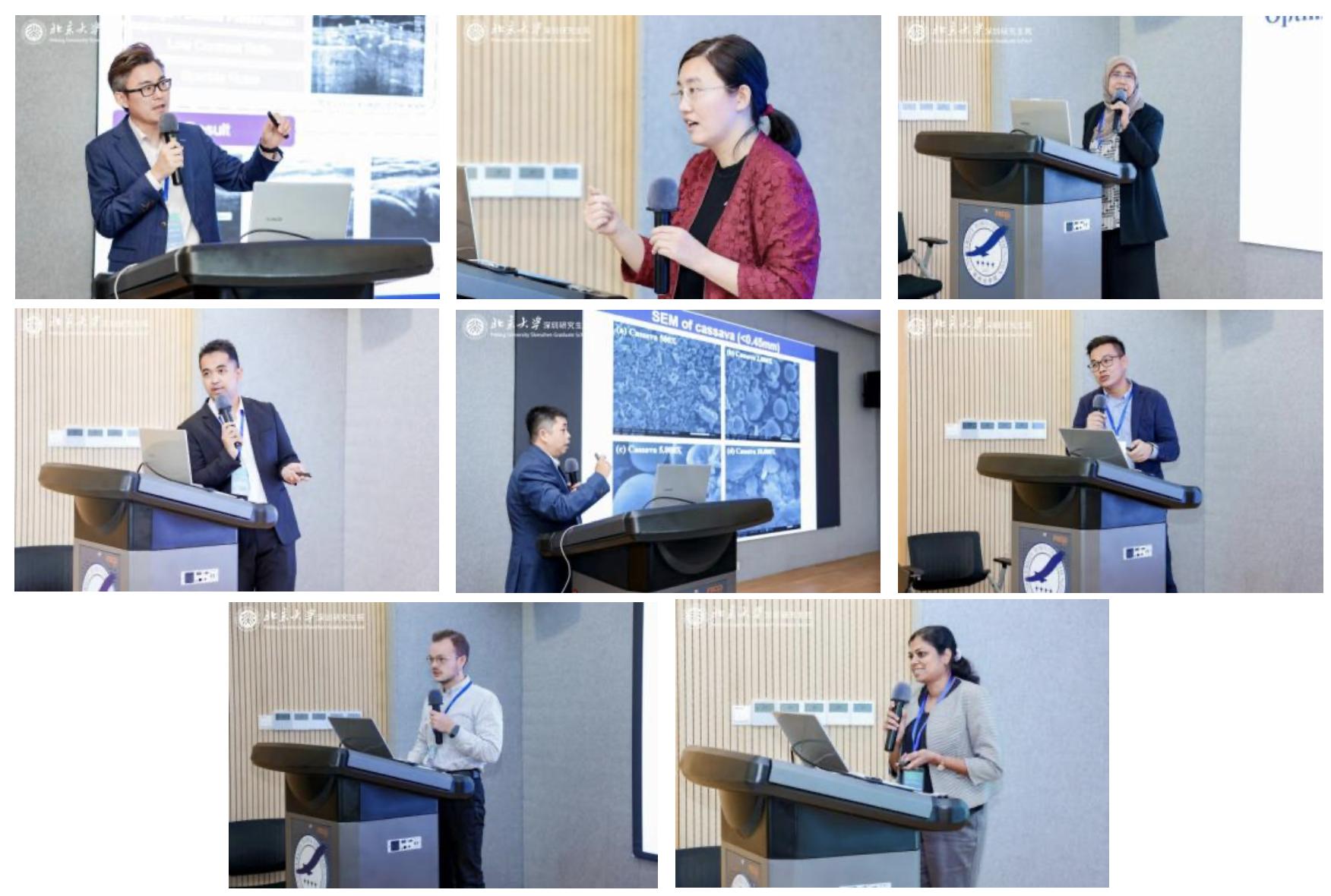
Presentations in the second sub-forum
On the morning of December 5, the closing ceremony of the forum was held at Lecture Hall 204 of the Shenzhen University Town International Conference Center. The session was chaired by Assistant Professors Tong Lianming and Chen Zhaolong from the School of Advanced Materials at Peking University Shenzhen Graduate School.During the closing session, presentations were delivered by Professor Pan Feng and Professor Meng Hong from Peking University Shenzhen Graduate School, Professor Hui Pan from the University of Macau, Associate Professor Nguyen Thanh Hai from the University of Science and Technology in Ho Chi Minh City, and Associate Professor Pei Song Chee from the University of Linton, Malaysia.They discussed the applications of AI and graph theory in structural chemistry for new energy and new materials, the development of AI-programmable new multifunctional light-emitting materials, and AI-assisted development and design of graphene wires. These presentations provided fresh perspectives and directions for the deep integration of AI and new materials.
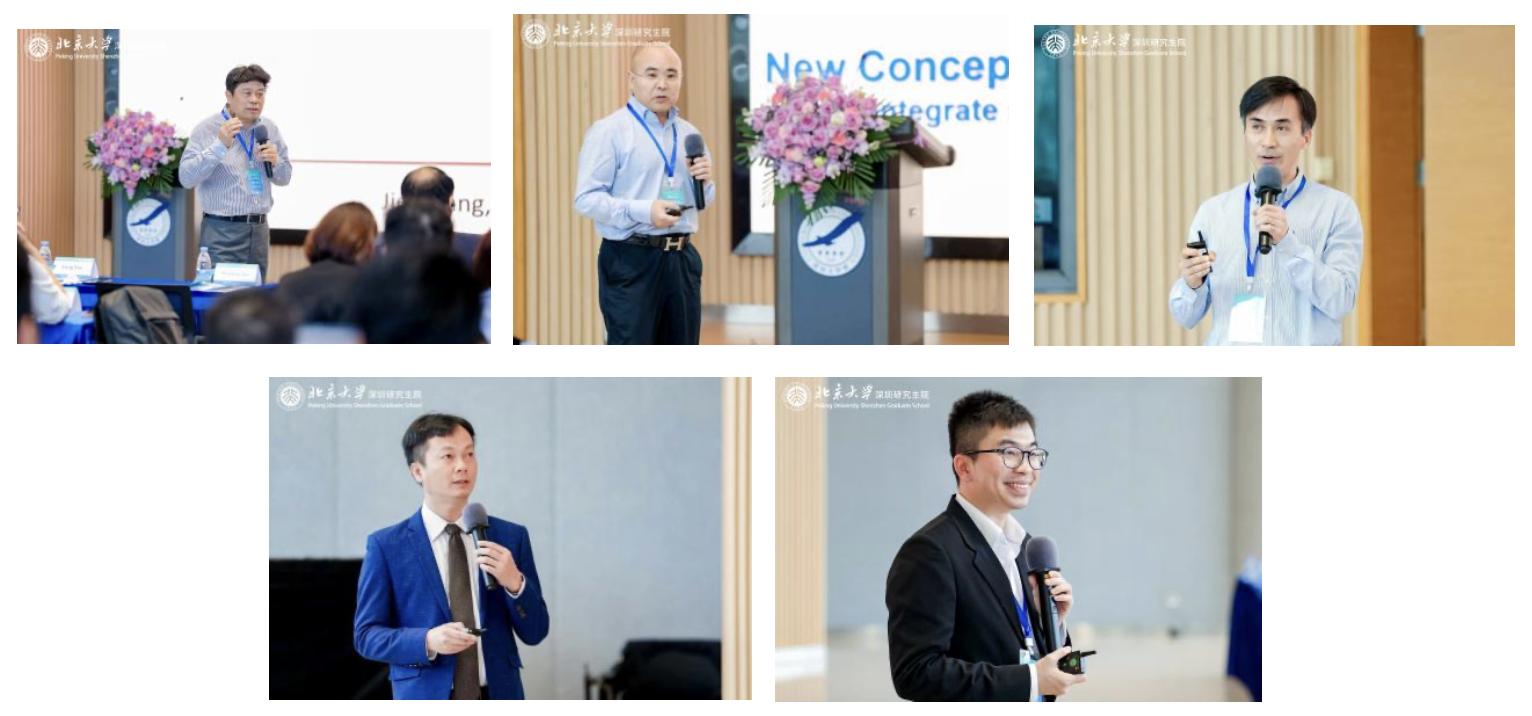
Pan Feng, Meng Hong, Hui Pan, Nguyen Thanh Hai, and Pei Song Chee giving their speeches
The forum attracted a large number of faculty and students, who actively engaged in discussions, asked questions, and shared insights based on the presentation topics. The atmosphere on-site was lively and engaging.
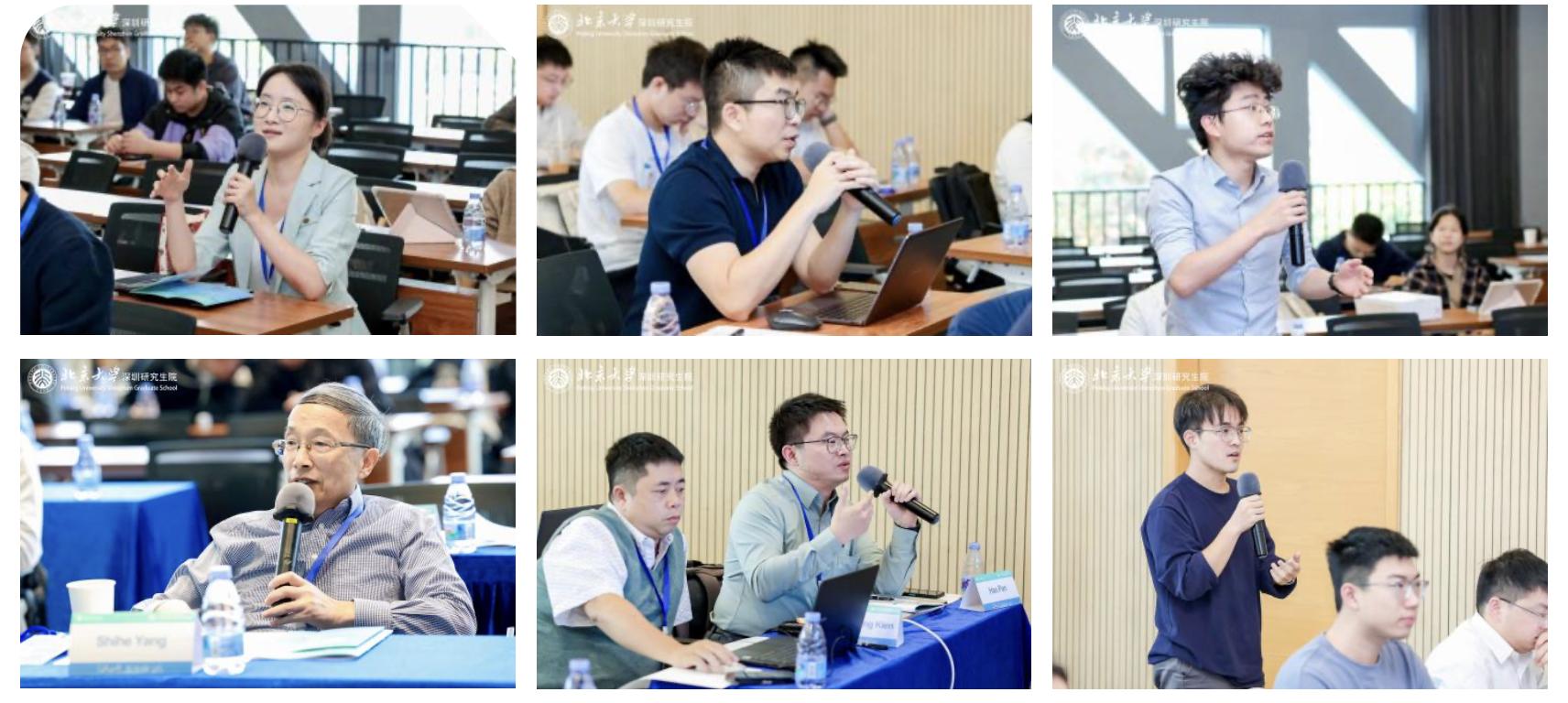
Q & A session
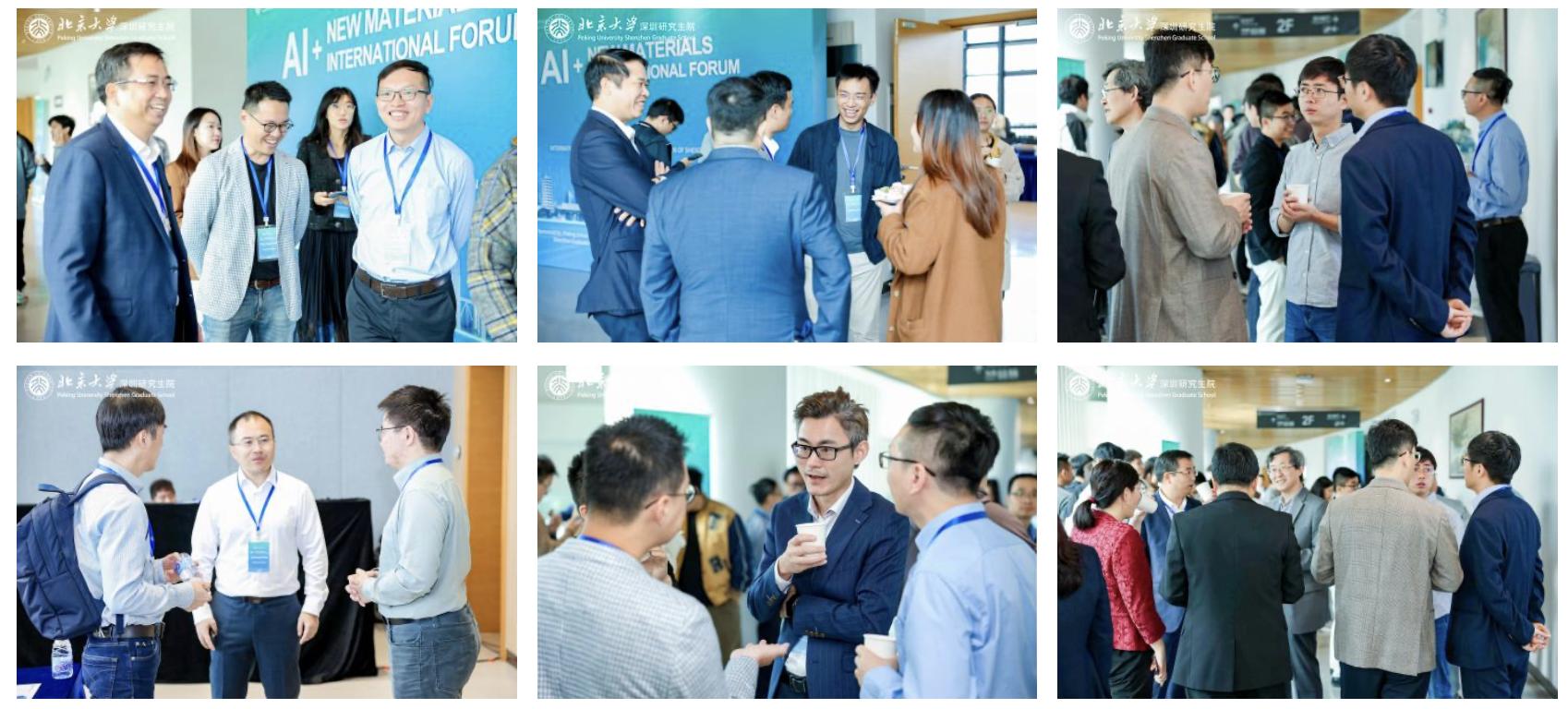
Interactive session
The forum brought together many top international scholars to engage in discussions and exchanges around the theme of “AI + NEW MATERIALS,” yielding fruitful results. In his closing speech, Xiao Yingguo remarked that AI technology has already demonstrated significant potential in various material research fields, from catalyst design to smart sensors, and from energy conversion to environmental protection. The deep integration of AI and new materials is pushing materials science beyond traditional boundaries, opening up new research paradigms, and profoundly influencing industrial and societal development. He emphasized that the forum not only provided a platform for intellectual exchange and technical discussions within academia but also further promoted interdisciplinary collaboration and technological cooperation on a global scale, advancing the international integration of AI and new materials.
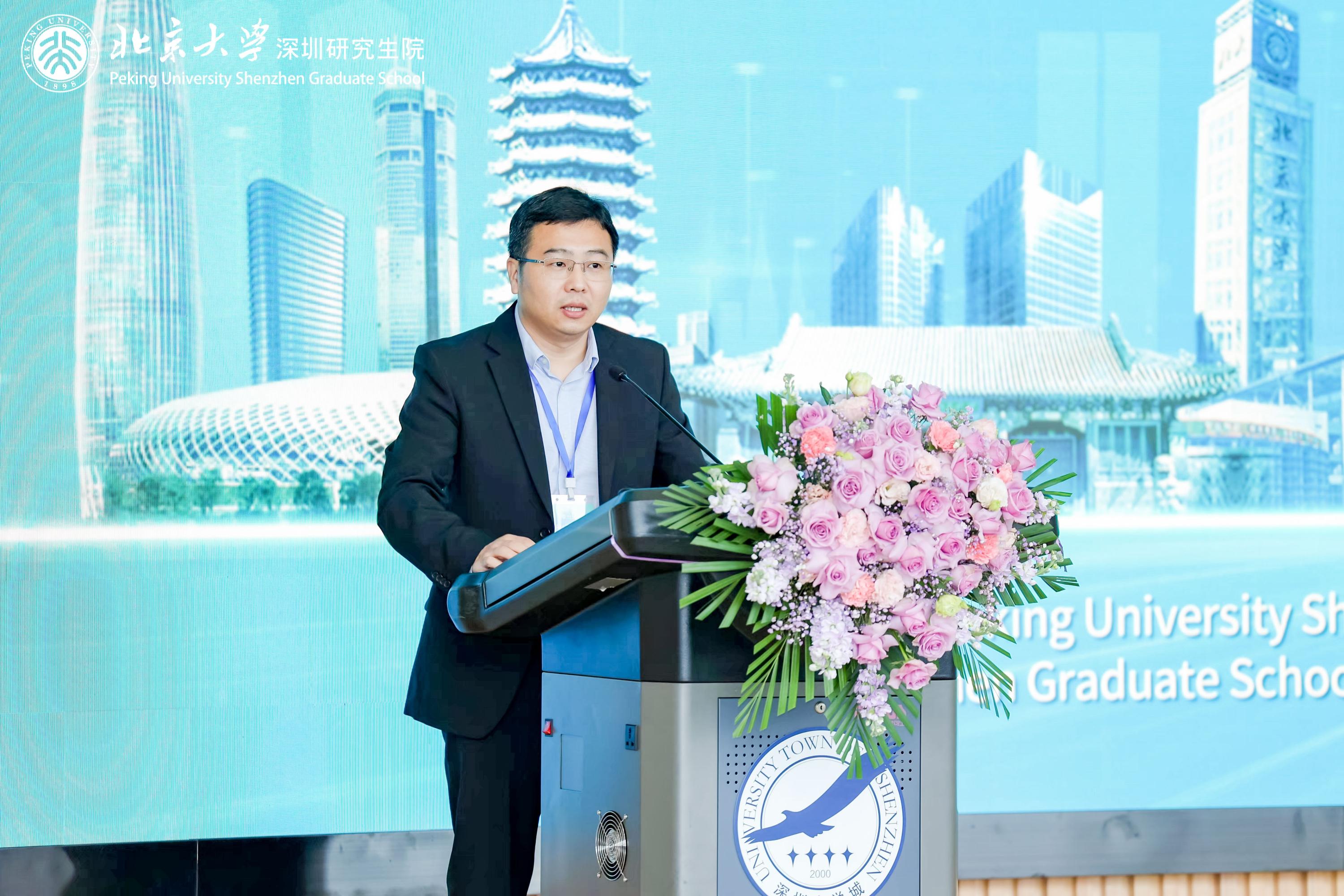
Xiao Yingguo giving his closing speech
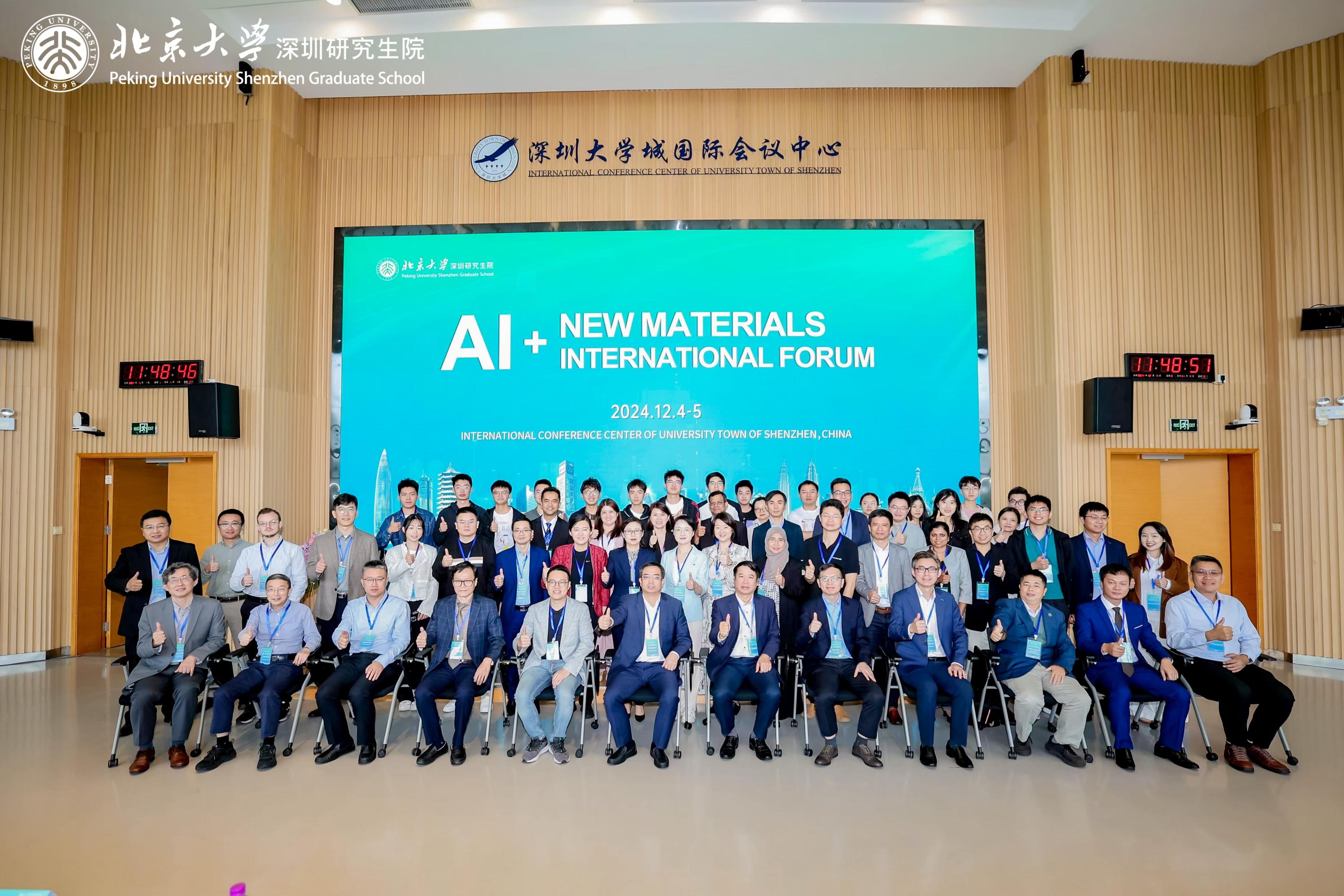
The group photo